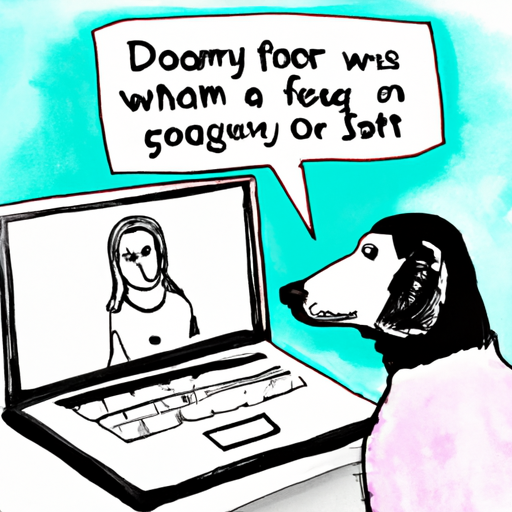It’s a sight that can throw any pet parent into panic mode: your beloved fur baby, foaming at the mouth. While this phenomenon isn’t exclusive to female dogs, it’s essential to understand the various reasons behind this occurrence. This article will delve into the nitty-gritty of why female dogs foam at the mouth and offer insights into when this could be a sign of a serious health concern, and when it’s merely a harmless expression of canine behavior.
Table of Contents
- Understanding the Phenomenon: Foaming at the Mouth in Dogs
- Common Reasons for Foaming at the Mouth
- Serious Health Concerns
- When to Consult a Vet
- FAQs
Key Takeaways
- Foaming at the mouth in female dogs can be due to various reasons, from simple excitement to serious health issues.
- Understanding the context is critical in determining whether it’s a cause for concern.
- Always consult a veterinarian if the foaming is accompanied by other concerning symptoms.
Understanding the Phenomenon: Foaming at the Mouth in Dogs
Foaming at the mouth, often confused with excessive drooling, is when a dog produces a frothy substance around its mouth. This typically happens when the dog is panting heavily, causing saliva to mix with air to create “foam.” This phenomenon is not gender-specific and can occur in both male and female dogs.
Common Reasons for Foaming at the Mouth
-
Stress or Excitement: Dogs sometimes foam at the mouth when they’re overly excited or stressed. This could happen during playtime, a visit to the vet, or when they encounter new people or animals. This is usually temporary and goes away once the dog calms down.
-
Nausea or Discomfort: Just like humans, dogs can also experience nausea or gastrointestinal discomfort, which may cause them to foam at the mouth. This is often accompanied by other symptoms like vomiting, loss of appetite, or changes in bowel movements. Onetopdog has a great article on understanding canine gastrointestinal health.
-
Eating Something Unpleasant: Dogs explore the world with their mouths, and sometimes they may ingest substances that taste bad or are mildly toxic. This could lead to immediate foaming as the dog tries to expel the unpleasant taste.
Serious Health Concerns
While the reasons above are relatively harmless, foaming at the mouth can also be a symptom of serious health issues, such as:
-
Rabies: Rabies is a fatal, viral disease that affects the central nervous system. Foaming at the mouth is one of the most well-known symptoms, but it usually appears in the disease’s final stages.
-
Heatstroke: Dogs can’t sweat like humans, so they pant to regulate their body temperature. During a heatstroke, heavy panting can lead to foaming at the mouth. This is a medical emergency that requires immediate attention.
-
Seizures or Epilepsy: Foaming at the mouth can occur during or after a seizure. This is often accompanied by other symptoms like muscle twitches, loss of consciousness, or uncontrolled urination.
-
Canine Distemper: This highly contagious viral disease can cause a range of symptoms, including foaming at the mouth, coughing, fever, and eye and nose discharge.
When to Consult a Vet
While occasional foaming at the mouth is not necessarily a cause for concern, it’s essential to monitor your dog’s behavior and other symptoms. If the foaming is persistent, accompanied by other signs of distress, or if your dog has been exposed to a potentially rabid animal, consult a vet immediately. Onetopdog’s guide on when to seek veterinary help offers useful advice on this topic.
FAQs
1. Why is my dog foaming at the mouth and shaking?
Foaming at the mouth and shaking could signify a serious health condition like a seizure or poisoning. Consult a vet immediately.
2. Is foaming at the mouth a sign of rabies in dogs?
Foaming at the mouth is a symptom of advanced rabies in dogs. However, not all foaming indicates rabies, especially if the dog is vaccinated.
3. Can foaming at the mouth be prevented?
Prevention depends on the cause. Regular veterinary check-ups, keeping your dog calm, preventing access to toxins, and maintaining a proper vaccination schedule can help.
4. My dog foams at the mouth when she sees other dogs. Is that normal?
This could be a sign of stress or excitement. If it happens frequently or is accompanied by aggressive behavior, it might be worth consulting a behaviorist or trainer.
Remember, your pet relies on your care and attention. Knowing when to seek help can be a life-saving decision. For more information on dog health, visit Onetopdog.



